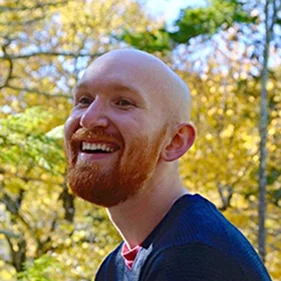Leading in Lockdown

As one of my professors was lecturing in early March, my phone started to buzz. Our campus, Clark University, was closing in a week because of the coronavirus.
Students were frantic. Within minutes, they left the classroom to figure out where they would go and how their classes would be affected.
For me, one of the major transitions would be the loss of my Hillel community on campus. I would no longer be able to celebrate Shabbat each week with friends or fulfill my responsibilities as treasurer. The bagel brunches, holiday events and senior sendoffs our Hillel board planned for the spring semester would inevitably be canceled.
How was I supposed to build Jewish community from my bedroom?
I knew there would be a void in my life as I finished the rest of the semester online. As a joke, I posted in a Facebook group for college students in quarantine: “Who wants to join Zoom University Hillel?”
That’s when the idea was born.
Along with my ClarkU Hillel peers, I helped create Zoom University Hillel. The Facebook group gained over 8,000 members within four days.
Our goal was to make others feel welcome, just like they would in their own Hillel space on campus. Many of us felt like freshmen all over again, finding comfort and familiarity at Hillel as we adjusted to our new campus life. However, this time, we were adjusting to campus life without a physical campus.
We quickly became virtual community organizers, translating the in-person engagement skills we learned at ClarkU Hillel to Zoom University Hillel. To foster a sense of community, we posted discussion starters, created a logo using Hebrew letters to spell the word “Zoom” and scheduled online events to give students a chance to escape from life in quarantine.
To my surprise, I could build Jewish community from my bedroom. Students were posting every day to talk about Judaism, laugh about memes and find others with similar interests while they were stuck at home. They were also supporting one another through Facebook comments, offering praise to those who posted photos of their fresh challot and giving their numbers to students struggling in isolation.
Through our online interactions, I came to realize the colorful diversity of our new community. Students came from around the world, stretching from my college town of Worcester, Mass. to Margate, England.
From our larger Zoom University Hillel community, students formed smaller communities that empowered their own Jewish identities — Jews of color, LGBTQ Jews, Russian-speaking Jews. Some even bonded over hobbies, such as hockey, cooking and keeping up with the TV series “Survivor.” These conversations kept going offline too.
Although the school year is winding down, students continue to post every day in Zoom University Hillel, which has grown to more than 14,000 members. I’ve begun to think this group will keep going even after we return to campus. That’s because our worldwide Hillel community isn’t dependent on a physical space.
Over the past few months, we have successfully created a new Hillel. Of course, at this Hillel, there are no staff members who greet us upon arrival or any couches we can use when studying for finals. But there are thousands of students who are ready to meet new friends and strengthen Jewish life. Those are the real keys, I’ve realized, to creating a Hillel community beyond the confines of campus.
Ari Hoffman is a member of the Class of 2021 at Clark University.